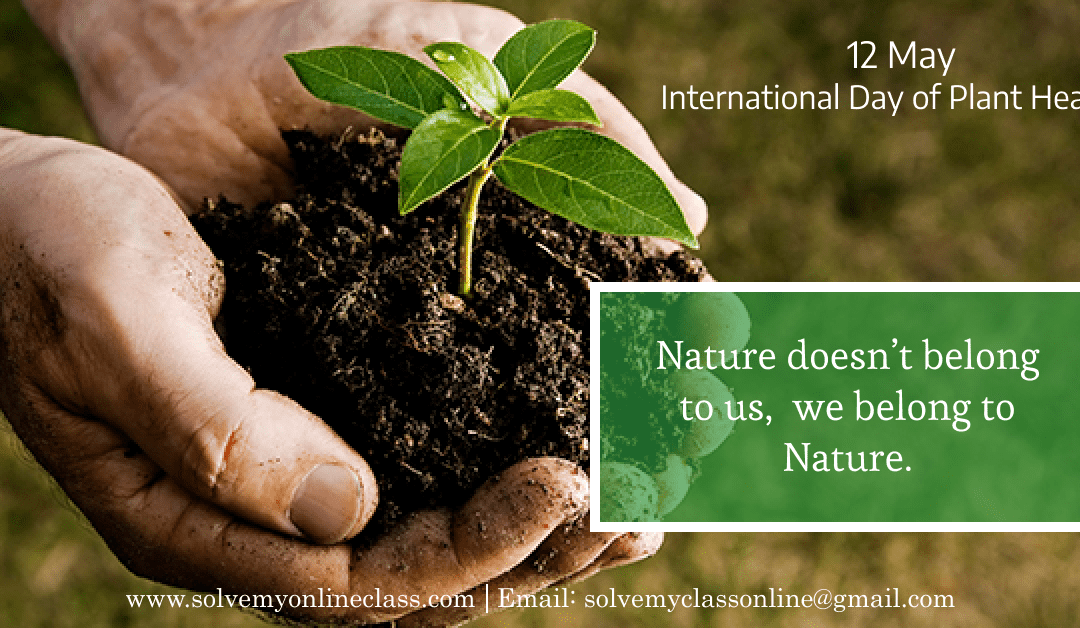The United Nations elected 12th May as the International Day of Plant Health to increase worldwide awareness of how protecting plant health assists in minimizing poverty, ending hunger, enhancing economic growth and development, and safeguarding the environment and biodiversity. In addition, the health of the plants has been the primary factor towards the sustainable growth and development of agriculture needed for feeding a growing worldwide population by 2050. Moreover, healthy plants comprise the foundation of every life on Earth, nutrition, food security, and ecosystems.
The background of International Day of Plant Health
- In December 2018, the United Nations General Assembly adopted a resolution and declared 2020 the International Year of Plant Health.
- The International Day of Plant Health has been a primary inheritance of the International Year of Plant Health, marked from 2020-to 2021.
- This International Day of Plant Health is celebrated every 12th May. Zambia had been championed and generally adopted by the United Nations General Assembly at a resolution co-signed by the Philippines, Bolivia, Tanzania, and Pakistan.
The subject of the International Day of Plant Health
- International Day of Plant Health 2022 has been to ‘boost food security and safeguard human health.’
- The safe trade of healthy plants and their items throughout borders forms the basis of a more robust food value chain and has been the main element in the fight against world hunger.
- It has been much more essential in keeping the plants healthy in protecting the environment via pesticide management and sustainable pests.
- The International Day of Plant Health could sponsor that the healthy plants include the base of every life on Earth and assist in nutrition and food security.
The significance of the International Day of Plant Health
- Such an International Day of Plant Health would be a scope in depicting the critical impact of the health of the plants itself and as a portion of One Health prospect covering the animals, human beings along with ecosystem health.
- It has been much more important to ensure that human beings perform everything they can do to maximize Earth’s food resources.
- The improved seeds offer greater product quality, increase the product’s shelf life, and better resistance to abiotic and biological stress.
- Some of the plants that have been good for human health and wellness at the house are snake plants, rosemary, orchid, golden pothos, lavender, fern, and Aloe Vera.
The productivity of the International Day of Plant Health
- The plants highlight nearly eighty percent of everything that human beings eat, and the animals rose upon farms and ate plants.
- The spread of pests and diseases and the implementation of the latest diseases in a changing climate have been something that the countries require to diminish.
- These plants have been much more important in worldwide food systems and have the strength to offer disease confrontation for several crops throughout the entire year.
- Such International Day of Plant Health has been regarding how human beings share their talent, knowledge, and expertise with other countries around the world.
The effectiveness of the International Day of Plant Health
- The plants act positively in many ways, such as enhancing fertility, minimizing soil erosion, and assisting the soil in obtaining moisture.
- A plant’s capacity to carry out its physiological functions to the best of its genetic potential has been an example of a positive plant health definition.
- Maintaining healthy plants needs the correct amount of water and food. Feeding the plants with mulch, nutrient-rich fertilizer, and entirely composted storage area waste has been essential.
- Healthy soils act as a foundation for plants by helping the roots of the plant and keeping the plants straight for growth.






